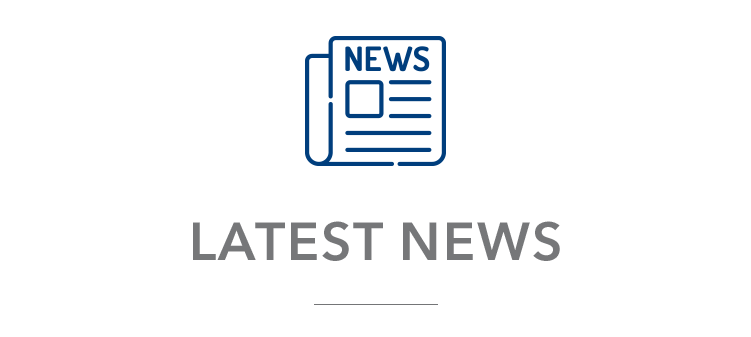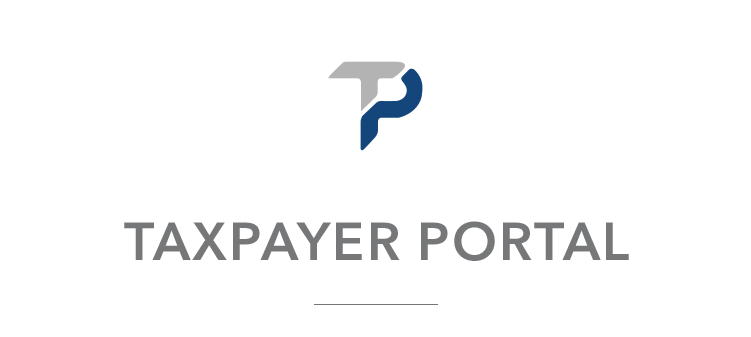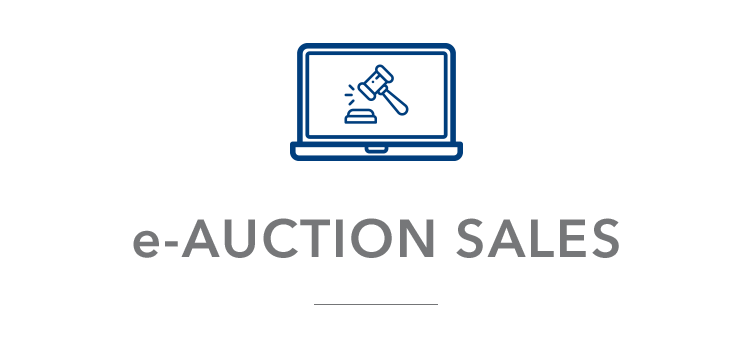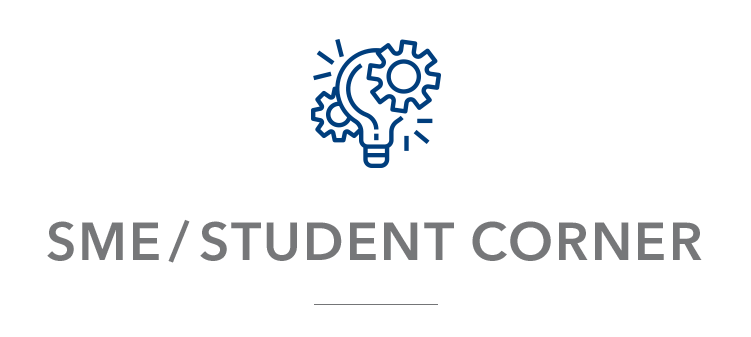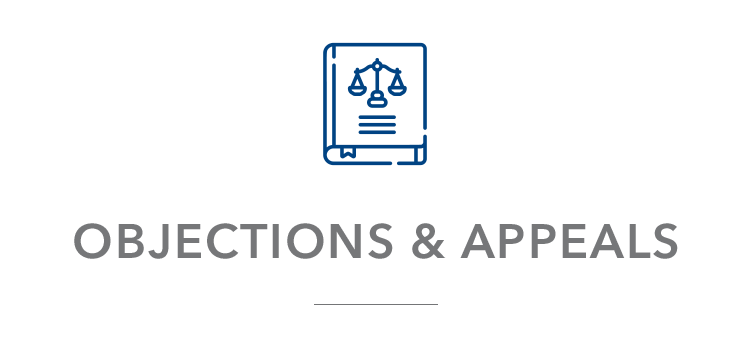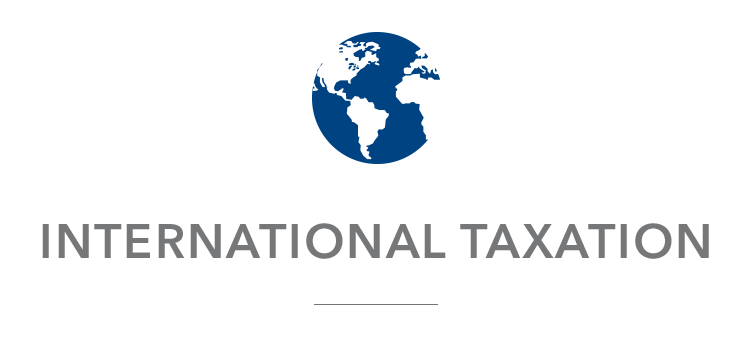Drawbacks
Drawback is the Customs procedure which provides for the refund of duty when goods are re-exported.
Eligibility
Any person can legally claim drawback if they can provide and substantiate the required information. Drawback applies to:
-
goods that were subject to duty and excise duty on importation and are exported under the appropriate CPC Code
-
goods for export produced in Mauritius and the production includes the use of imported raw materials (customs may require certification from the Mauritius Standards Bureau or any other recognised institution relating to the content of imported raw material in the final product)
Application for Drawback
Any person making a claim for drawback shall do so in writing and shall produce the export bill of entry, a copy of the import bill of entry and the invoice related to the goods. In addition to that, there are other conditions that should be satisfied. These are:
-
the application should be made within six months from the time of import
-
the F.O.B value at the time of export should exceed the C.I.F value at import
-
the claim for drawback should be made within three months from the date of entry for export of the goods
-
the claim for drawback should show clearly how the amount claimed has been arrived at
-
the claim should exceed Rs. 500 (several claims may be considered if the aggregated sum exceeds Rs. 5000).
The payment of the claim will be made only when the goods have been cleared by the proper export officer.
No drawback will be allowed if:
-
upon examination the goods do not correspond to the description in the export bill of entry
-
the goods upon which drawback has been allowed has not been shipped and customs not informed accordingly
The two cases mentioned above constitute customs offences which are liable to a fine (according to the value of the goods) upon conviction.
Prohibited & Controlled Exports
Customs enforces control on goods meant for export. There are export prohibitions and restrictions on some particular types of goods. The reasons behind the restriction or prohibition are as follows:
- quality checking and control (to keep the quality standards of local products)
- conservation purposes for endangered species (CITES-listed flora and fauna)
- the enforcement of provisions in various conventions (Rotterdam convention on hazardous chemicals, Cartagena Protocol on Biosafety, Basel convention on hazardous wastes etc.)
- the control of the export of local artefacts that have national, scientific or artistic importance
- the protection of the environment (ozone layer)
- health and security purposes
- instructions received from international organisations, for example United Nation, World Health Organisation, etc.
- local legislation which restricts the export of a particular product (e.g. scrap metal)
- fight against international money laundering
Control over exportation of goods
Goods destined for export may be subject to the requirement for a third party agency approval to export, for example, export permit from the Ministry of Industry, Commerce and Consumer Protection.
Customs shall allow the exportation of any controlled goods only after the appropriate clearance/authorization/permit has been received from the concerned third party agency.
Controlled and Prohibited goods at exportation are as below:
-
LIST OF CONTROLLED EXPORTS REQUIRING AN EXPORT PERMIT FROM THE MINISTRY OF INDUSTRY, COMMERCE AND CONSUMER PROTECTION
- Rice;
- Wheat or Meslin flour;
- Sand;
- Limestone;
- Cement;
- Textile and textile-articles for export to USA and Canada; and
- Rough Diamond
-
LIST OF CONTROLLED EXPORTS REQUIRING A CLEARANCE FROM A THIRD PARTY AGENCY
- Live animals (all species including birds)
- Meat , meat products and edible meat offal of bovine animals, swine, sheep, goats, horses, asses, mules or hinnies ( fresh , chilled, frozen)
- Other prepared or preserved meat, meat offal or blood
- Vegetables (fresh and dried) & certain roots and tubers
- Sugar (excluding samples) exceeding 10 Kg
- Organs (animals)
- Bird’s feathers
- Textile garments for men / boy, women / girl and babies for export to the Islamic Republic of Pakistan Pharmaceutical products
- Fish and , fish products & crustaceans, mollusc and other aquatic invertebrates; any live fish: coral or shell, whether live or dead; by-catch fish
- Dangerous Chemicals, Pesticides & extremely Dangerous Chemicals
- Used Vehicles
- Tea & tea products (none medicinal
- Tobacco & tobacco Product
- Plant & plant product
- Dry whole onions, Fresh whole Garlic, Fresh whole potatoes, Garlic seeds, Onion seeds, Potato seeds
- Groundnuts
- Arms and ammunitions
- Dangerous drug
- Endangered fauna/flora spices as cited in the CITES appendices
- Bank Notes > Rs 500,000
- Copy Rights (CDs & DVDs
- Hazardous wastes as per Environment Protection Reg 2001
- Pharmaceuticals Products
- Products containing radioactive elements
- Used batteries
- Scrap metals (except for a person who is engaged in a manufacturing business which generates scrap metal as a by-product may export that by-product)
- Alcohol (No person shall export alcohol except with the written authorization of the Director-General and subject to the terms and conditions specified in the authorization)
-
PROHIBITED GOODS FOR EXPORTS
- National Heritage
No person shall export or cause to export a National Heritage, that is goods designated in Section 12 and specified in the Schedule of the National Heritage Fund Act 2003 without the prior approval of the National Heritage Fund Board.
- Copper Exported as Scrap
- Refined copper and copper alloys, unwrought classified under H.S Heading 7403 exported as scrap
- Copper waste and scrap classified under H.S Heading 7404
- National Heritage
Scanner
Scanners are non-intrusive inspection tools which are being used by MRA for clearance of goods at the Port and Airport. In addition of being pre-requisites for security requirements according to the WCO SAFE Framework of Standards, these equipment help customs in detecting offences (undeclared, restricted or prohibited goods) and also in profiling cargo that really require examination.
The benefits of using scanners are reduction in dwell-time, expedited clearance of legitimate goods and the promotion of the seamless movement of goods through secure international trade supply chains.
FAQ's - Import
-
I am a frequent importer, what should I do to be able to make use of e-payment?
-
Is there a risk for foodstuffs (fruits and vegetables) to be damaged by the scanner?
-
Can I import live animals (fish, birds, and other pets) and plants for commercial purposes?
-
I am a frequent importer, what should I do to be able to make use of e-payment?
You only have to inform your bank about the transaction you want to effectuate and you provide your customs broker/agent with the bank account to be credited.
-
What is AEO? Is this status for importers only?
The AEO status is trade facilitation measure which aims at encouraging best practices in customs procedures by granting recognition to compliant stakeholders. This will increase the credibility of the accredited operators among their suppliers and buyers. AEOs may also benefit from simplified customs procedures.
Anyone involved in the international supply chain that carries out customs related activities can apply for the AEO status, namely:
- Importers
- Manufacturers
- Exporters
- Freight Forwarders
- Warehouse Keepers
- Customs Agents
- Carriers
-
What is the Cargo Fast Track Initiative?
It has been noted that customs procedures are the same irrespective of whether an importer is compliant or not. Therefore to tackle this shortcoming, and to be in line with the recommendations of the Revised Kyoto Convention, which states that additional facilities have to be provided to compliant importers to improve compliance level, the Customs Department is launching a new project the 'Fast Track Cargo Initiative'. Under this initiative, compliant importers who have successfully followed the compliance and monitoring programme will no longer be required to submit hard copy of the import declaration together with supporting commercial documents. However, these original documents and declarations are to be kept at the importers premises and made available to Customs. Consignments of these importers will be subject to a low rate of inspection and inspection will be performed at the importer’s premises.
-
Is there a risk for foodstuffs (fruits and vegetables) to be damaged by the scanner?
The scanners acquired by customs are safe to scan foodstuffs of any kind.
-
I am an importer and very often I receive with my imports, advertising materials, promotional items and free samples which I have not commanded. Besides, these items are not listed in my invoice. Is it a customs offence? What should I do?
Every item imported, whether it is purchased or free, should be declared to customs in the BOE. It is not an offence to import these goods but will be an offence if they are not declared.
In this particular case, importers should liaise with their suppliers so as to include these items in the invoice. Customs will assess the value and duty and VAT will be claimed where applicable.
-
What if I cannot submit my original trade documents at the time of importation? Will I be able to clear my goods?
Normally customs requires all original trade documents with the BOE. However, when these documents are delayed (mailing problems, wrong documents sent by supplier, etc.), customs provides for a solution so as not to penalise importers. The importer is required to make a deposit of Rs. 20,000 (cash or cheque) to Customs in exchange of which the copies of the trade documents may be used in the BOE. If the original documents are not produced within a period of 20 working days, the deposit will be paid into Consolidated Fund and customs may investigate on this particular importation (to see if trade documents have been falsified). If the original documents are produced, the deposit is refunded.
-
If my import shipment does not carry any dutiable commodities, do I need to submit any import declaration?
An import declaration is required for every import. If an import shipment does not carry any dutiable commodities, then the import declaration will bear no customs duty. However, it may be that VAT is payable. Even if VAT also is exempted, the declaration has to be submitted because customs declarations are not only used for declaration and payment purposes but also for statistical purposes.
-
Can I import live animals (fish, birds, and other pets) and plants for commercial purposes?
You can import live animals/plants for commercial purposes provided certain conditions are satisfied. These are listed below:
-
The animals and plants should not be listed in the Appendix I of the Convention on International Trade in Endangered Species of Fauna and Flora (C.I.T.E.S). This appendix prohibits trade in these species because they are in danger of extinction. However, if it can be certified that the particular species have been bred artificially/in captivity, then trade can be allowed provided the consignment is accompanied by the required import and export permits.
-
If the specimens are listed in Appendices II or III of C.I.T.E.S, then they should be accompanied by the necessary permits and certificates.
-
The packaging of live animals and plants should be made according to Guidelines for transport and preparation for shipment of live wild animals and plants so as to prevent the specimen from being hurt or stressed.
-
Arrangements should be made in advance with relevant authorities (veterinary service) for quarantine purposes.
-
Commercial Importers
Customs Requirements for Clearance of Imported Goods
Making a Customs Declaration
A Customs Declaration/Bill of Entry has to be submitted for every importation. Some importers have their own customs clerk but most of them utilise the services of a Customs House broker, or freight forwarding agent. Customs agents/brokers must be registered at Customs to be able to clear goods.
Lodging a Declaration
Import entries and other clearances are a legal declaration to Customs under the Customs Act 1988, providing details of import shipments. Among other offences under the Act, it is an offence to make an erroneous entry or declaration. A penalty may be applied, or prosecution action taken if an erroneous entry or declaration is made.
Temporary Imports
If you import non-consumable goods that will be re-exported within 12 months of importation, you may qualify to enter the goods using a Temporary Import Entry. In this case you may be required to provide some form of security (such as a cash deposit or other approved security) to cover any Customs Duty and/or VAT pending re-export. The deposit will be fully refunded if the goods are re-exported within 12 months from the date of importation.
Mauritius accepts the ATA carnet in lieu of security as a means of facilitating the temporary importation of commercial samples, professional equipment and goods for use or display at an exhibition, and certain other materials and equipment.
ATA Carnet
This is an international Customs document designed to facilitate the temporary importation of goods into other countries where you intend to return all the goods to the country of original export. The same document set is used at arriving and departing ports as it contains a set of detachable import/export vouchers that are completed by Customs at each port. The ATA carnet has a validity of 12 months commencing from the date of issue.
Clearance
The following items require clearances from the relevant authorities:
-
Foodstuffs – Food Import Unit , Ministry of Health & Quality of Life Wellness
-
Meat and Meat Products – Division of Veterinary Services, Ministry of Agro Industry and Food Security
-
Fish and Fish Products – Ministry of Blue Economy, Marine Resources, Fisheries and Shipping
-
-
Agricultural Items (fruits, vegetables, flowers, seeds) – Ministry of Agro Industries - Industry and Food Security
-
Pharmaceutical products – Government Pharmacist
-
Live Animals – Veterinary Division of Veterinary Services/Quarantine Services - Ministry of Agro- Industriy and Food Security
-
Tobacco Products – National Agricultural Products Regulatory Office (NAPRO)
-
Tea – NAPRO
-
Toys and other consumer products (iron bars, electric cables etc)- Mauritius Standards Bureau (MSB)
-
Chemicals – Dangerous Chemical Control Board (DCCB)
Permits
Import permit is required for goods listed in the First Schedule of the Consumer Protection (Control of Import) Regulation 1999.
The usual method for establishing the Customs value is by using the transaction value (the price paid or payable for the imported goods). Overseas freight and insurance charges are deducted if these charges are already included in the transaction value.
Customs will accept the transaction value on these conditions:
- there must be a sale for export to Mauritius. Goods which have not been sold for export cannot be valued by this method (such as goods on consignment, or goods supplied free of charge)
- it must be shown that the transaction value has not been affected by any relationship between the importer and supplier.
Where the transaction value cannot be used, there are alternatives for determining the Customs value:
- value of identical goods
- value of similar goods
- the deductive method of valuation
- the computed method of valuation
- the fall back method of valuation
When applying the fall back method of valuation (as a last resort), the other valuation methods may be used in a more flexible and tolerant manner. However, the value of the goods being valued shall not be determined on the basis of :
- the selling price in Mauritius of those goods produced in Mauritius
- a system which provides for the acceptance for duty purposes of the higher of two alternative values
- the price of those goods on the domestic market of the country of export
- the costs of production other than the computed method of valuation
- the price of the goods for export to a country other than Mauritius: or
- arbitrary or fictitious values.
Where Customs Officers find that goods have been declared at a value different from their true value they may, on the basis of the information provided by the importer and on other information available, determine the value of those goods and the importer shall pay duty, excise duty and taxes, if any, on the value so determined.
The Customs value is required in Mauritian Rupee, so it may be necessary to convert the invoiced amount into the Mauritian Rupee equivalent, using the exchange rate in force on the date the import entry or clearance document is lodged at Customs.
Exchange rates used by the Mauritius Customs Department are set for one week period. They are made available on the MRA website and 3-4 days in advance at the Registry.
Import Duty
The rate of Customs duty applicable on imported goods shall be that as per the First Schedule to the Customs Tariff Act.
-
Tariff classification – The classification of any goods for the purposes of the Act shall be determined in accordance with the Convention and any relevant publications of the Council relating to it. Convention means the International Convention on the Harmonised Commodity Description and Coding System.
The structure of the tariff is based on the World Customs Organisation International Convention on the Harmonized Commodity Description and Coding system (commonly referred to as the Harmonized System).
- Preferential Trade Agreements
The rate of customs duty applicable to goods imported under the COMESA Treaty, SADC Trade Protocol, Indian Ocean Commission and Bilateral Agreements such as Pakistan Mauritius Preferential Trade Agreement (PMPTA), European Commission (EC) and Mauritius –Turkey Free Trade Agreement (MTFTA) is also indicated in the Tariff Schedule
Mauritius has signed Preferential Trade Agreements with various countries, and as a result Mauritian goods have a preferential market in those countries. Agreement can be of three types:
- Unilateral - where Mauritius can benefit from preferential treatments without giving the same to the other party/parties
- Bilateral - (between two parties) where Mauritius as well as the other party benefit from preferential treatment.
- Multilateral - where Mauritius benefits from and offers preferential treatments from/to regional trade communities (SADC and EU).
For example, if Mauritius had a bilateral agreement with a particular country, we would have reduced rates or complete exemption of customs duty on imports from that country (depending on the clauses of the agreement) the same would apply for Mauritian exports to that country.
Some of the trade agreements signed by Mauritius are listed below:
- PMPTA - Pakistan Mauritius Preferential Trade Agreement
- Mauritius – Turkey Free Trade Agreement (MTFTA)
- IOC – India Ocean Commission
- SADC – Southern Africa Development Community
- COMESA – Common Market for Eastern and Southern Africa
- EU-ESA – European Union- Eastern and Southern Africa (interim agreement)
-
Concession and exemption – Part II A of the First Schedule to the Customs Tariff Act provides for concessionary rate of customs duty on imported goods applicable to bodies, organization and persons under specific circumstances.
Excise Duty
Excisable goods means goods specified in the First Schedule of the Excise Act 1994 and the chargeable rate shall be as per Part I of the First Schedule of the Excise Act 1994.( hyperlink – The Excise Act 1994 )
- Concession on Excisable Goods
A concessionary rate of excise duty is applicable to imported or manufactured goods as per Part 1 A of the First Schedule to the Excise Act.
- MID Levy
A MID levy shall be chargeable on the excisable goods specified in Part II of the First Schedule, whether the goods are for home consumption or not.
- CO2 Levy
A CO2 levy shall be chargeable, or a CO2 rebate shall be granted, as the case may be, on the motor cars specified in Sub-Part A of Part III of the First Schedule when removed for home consumption.
Origin of goods
The origin of goods you are importing may have a bearing on the tariff rate of duty to which your goods may be liable.Goods can be classified into two types of Origin which are:
- the general rate of duty which applies to goods imported from all foreign countries
- the preferential rate which applies to goods imported from countries having trade agreements with Mauritius. The rate of duty imposed will depend on the particularities of the agreement (the rate of duty may be of reduced rates or even nil).
For more information on the Tariff Classification and Origin of a particular item you can contact the Customs Tariff and Origin Information Unit.
Value Added Tax
Goods imported into Mauritius are liable for Value Added Tax (VAT) of 15 percent. VAT is payable on the sum of following amounts:
- the Customs value of the goods,
- any import duty and excise duty,(see above) and
- the freight and insurance costs incurred in transporting the goods to Mauritius.
Payment of Charges
There are three modes of payment for the Customs charges. These are:
- Cash
- Cheque
- e-payment – through bank transfer.
Among these three modes of payment, e-payment proves to be the easiest, safest, fastest and most reliable. In fact, this mode of payment eliminates the shortcomings of the other two (long queues at cashier, bounced cheques and time consuming procedures) and customs is encouraging more and more stakeholders to make use of this particular payment mode.
E-payment initiative
E-payment is a mode of payment in addition to the conventional methods of payment offered by the banks under specific security norms. This scheme facilitates anytime, anywhere payment and an instant cyber receipt is generated once the transaction is completed. The e-payment facility is a part of the e-Customs initiatives.
Customs administration is an important player in business processes, able to determine the speed and effectivity of business transactions. It also generates a significant share of state revenues, therefore its processes effectiveness is vital for the state and the business.The implementation of electronic customs processes (e-Customs) creates basic preconditions for:
- Speeding up the customs processes and consequently speeding up business transactions,
- ore transparent and up-to-time income flows into the state budget.
The ultimate goal in the e-customs project is to allow all customs/trader transactions and data exchange to be performed electronically in a secure and reliable manner.
The main idea is to speed up the payment process and consequently speed up the whole customs declaration procedure. After the trader sends the payment order to his bank, the bank immediately sends an electronic payment guarantee message to the corresponding customs office. Money transfer is done in a standard way through the bank clearing system and is independent from the payment guarantee message sent to the customs office.
Advantages for Stakeholders
- Ease of operation and convenience (elimination of shortcomings like bounced/dishonored cheques).
- Improved security of transactions.
- Reduce costs for stakeholders dealing with Customs(time and transportation cost reduction)
- Instant Cyber receipt with banks transaction number becomes available.
- Facility is available on a 24x7 basis.
- One can pay on behalf of the firm, company and others.
- On-line payment of customs duties (no more queues and waiting).
- Declaration validated as soon as payment is effected.
- Filling of a single form for registration and approval.
- Is a pre-requisite to join the Fast Track Cargo Initiative.
- Improved commercial relationships between customs and stakeholders.
- Confidentiality and transparency of the transfer of funds.
- Increased competitiveness compared to other stakeholders using traditional methods.
Refunds
Refunds of Customs duty and VAT may be made when:
- duty is paid in error
- a concession is later approved for the goods
- the goods are of faulty manufacture (return to exporter)
- the goods were in a damaged or deteriorated condition prior to leaving Customs control (return to exporter)
Evidence to support any refund application will be required.
Goods on which import duty is paid and subsequently exported may also be eligible for a drawback of the duty and VAT (examination by Customs at time of export to ascertain if the goods have not been altered/substituted).
Short-payments
Short-payment of Customs charges may be identified in various ways, for example, voluntary disclosures by clients, Customs audit or other Customs investigations.
Most of short payments cases arise due to under valuation of goods by stakeholders to reduce their customs charges. When this malpractice is detected, an "upliftment" procedure is done and the true value is assessed by customs.
Consequently an uplifted customs charge will be paid by the importer. The "uplifted" customs charge may include a penalty depending on the gravity of the undervaluation and on whether there are other customs offences associated with the importation.
Where the short-payment of Customs charges arises as the result of audit activity or from a Customs enquiry (post clearance control), Customs provides notice in writing including information of any appeal provisions.
Post-entry/Amendments
Customs has to be informed when changes (Post-entry/Amendments) need to be done in the information provided in a Customs Declaration/Bill of entry. The declarant/customs broker informs Customs electronically (EDI) about the information (quantity, marks and numbers, weight, name of importer, etc...) to be amended. Customs revert back the message after approval and only then the declarant issue a new version of the declaration be issued and continue with the clearance procedures.
No post-entry can be made in the customs regime and the routing code. If changes are to made for this particular heading, the bill of entry should be cancelled and a fresh bill of entry has to be issued.
To help prevent the importation of unauthorised copies of goods, the owner of a trade mark or copyright can give a notice to the Customs requesting the detention of the goods. The current list of trade marks and copyright notices is shown below. The owner of a registered trade mark has the exclusive right to the use the trade mark in Mauritius. The owner may take Legal action against anyone who imports, sells, manufactures, or distributes goods bearing an unauthorised copy of the trade mark, or a mark similar to the trade mark, if it is likely to deceive or cause confusion among consumers.
List of Right Owners registered at Customs
Customs detains a wide range of imitation goods at the border. The most common counterfeit and pirated goods are:
- Clothing
- Shoes
- Toys
- Bags
- Wallets/purses
- Caps
- Sunglasses
- Optical discs (CDs/DVDs)
- Watches
- Cell phone accessories
- Spare parts and accessories for motor vehicle
- Pharmaceutical products
- Perfumes, cosmetics and other accessories
- Cigarettes
Some counterfeit goods intercepted at the border pose a risk to consumers, such as imitation foodstuffs, medicines, toys, car oil filters and cell phone charging units.
Importers and consumers should consider the following if they suspect goods are counterfeit:
- Counterfeit goods are often sold very cheaply at markets or on the Internet.
- Most counterfeits are imitation of expensive, high quality luxurious products.
- Counterfeit goods often have low quality packaging, badly printed labels.
- Counterfeit goods might be dangerous for consumption and use. (e.g. toys for children with parts not properly fixed, medicine not containing the appropriate composition).
- Counterfeit goods are not worth the original product in terms of quality, life time and performance.
- Importation of counterfeit goods is punishable by law. (intellectual property rights act)
Authorised Economic Operators(AEO)
AEO status is primarily a trade facilitation measure focused on an accreditation regime to prove supply chain compliance. The aim of the AEO programme is to enhance security through granting recognition to reliable traders and encouraging best practice at all levels in the international supply chain. Operators accredited with the AEO status will benefit of the following advantages:
- Expedited release of goods
- Reduced number of inspections
- Eligibility to account-based processing
- Movement of low-risk shipments out of inspection lines
- Development of simplified post-entry requirements
- Worldwide recognition as a low-risk trader
- Streamlined Customs procedures
- Priority treatment in case of physical control
- Fewer delayed shipments
- Improved planning
- Improved customer loyalty
- Adoption of a paperless Customs environment
An operator who wants to acquire the AEO status will have to satisfy certain conditions to the satisfaction of Customs. In addition to that, the applicant will have to undergo a physical evaluation (audit) carried out by a pool officers from the MRA Customs Department. The four main criteria to be analysed are:
- Financial solvency
- Compliance
- Safety and Security
- Proper system of records
Once the evaluation is over, Customs will decide whether or not to grant the operator the AEO status.









